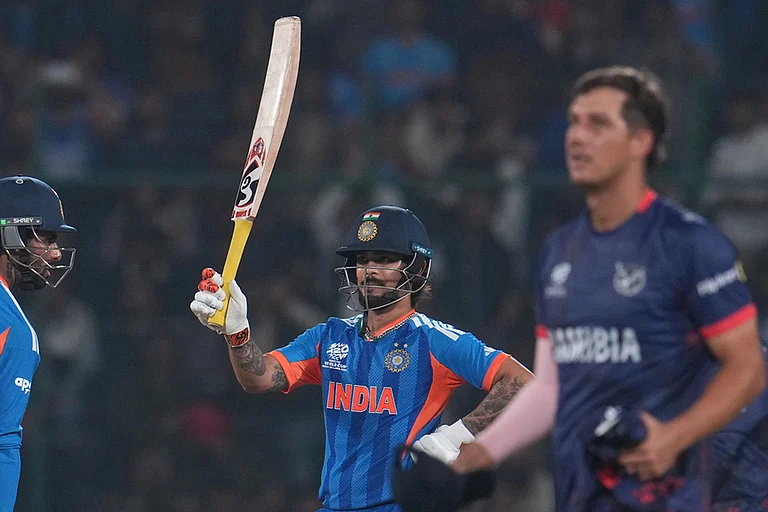The Supreme Court on Monday set up a five-judge bench to hear the petitions challenging the abrogation of Article 370 of the Constitution of India and scrapping the special status of Jammu and Kashmir. The political parties in J&K welcomed the SC’s decision.
The petitions against the abrogation of Article 370 were filed in 2019 and have not been heard since 2020. The five-judge bench would be headed by Chief Justice of India DY Chandrachud.
On August 5, 2019, The Narendra Modi government scrapped the special status of Jammu and Kashmir, enabled by the Articles 370 and 35A of the Constitution, by abrogating these provisions and bifurcated it into two Union Territories (UTs) of J&K and Ladakh. Soon after the move, several parties challenged it in the Supreme Court.
How did parties in J&K react?
CPI (M) leader called the setting up of a “welcome decision” and said they have high hopes.
He said, “It is a welcome decision by the Supreme Court though delayed for a long. The move by the SC is encouraging. The decisions of August 5, 2019, abrogating Article 370 and bifurcating J&K into two Union Territories was not only an assault on the democratic structure of Jammu and Kashmir but it was also an assault on the Constitution of India itself.”
Jammu Kashmir National Conference (JKNC) leader and former J&K Chief Minister Omar Abdullah tweeted, “Finally, the bench is constituted. I look forward to the hearings beginning in right earnest now.”
Notably, the development comes within days of CJI Chandrachud’s visit to Srinagar and former J&K CM and People’s Democratic Party (PDP) chief Mehboob Mufti raising the issue of pending petitions against the abrogation of Article 370.
In Srinagar, Chandrachud last week delivered the inaugural address of the 19th All India Legal Services Authorities’ meet. J&K Lieutenant Governor Manoj Sinha in his address described the abrogation of Articles 370 and 35A as “historic reforms” that ushered in a new era in J&K.
Mehbooba raised the issue of pending petitions on Twitter.
She said, “Welcome CJI to Kashmir. Article 370 — a constitutional commitment of this nation to the people of J&K was illegally revoked. This is despite earlier Supreme Court rulings against its abrogation. It has been four years yet the matter is still pending before the Honourable Court.”
Who have challenged Article 370 abrogation?
Mainly, the petitioners challenging the abrogation of Article 370 are the political parties of J&K. They have said that the Centre is not interested in the hearing of the case.
Former J&K CM Abdullah has been saying that the Bharatiya Janata Party (BJP) government does not want a hearing of petitions challenging the validity of revocation of Article 370 in the Supreme Court “as it would be impossible for it to defend abrogation of Article 370”.
Shah Faesal, People’s Union of Civil Liberties (PUCL), Jammu and Kashmir High Court Bar Association, National Conference, and other political parties are the petitioners challenging the abrogation of Article 370 and the subsequent bifurcation of the erstwhile state of J&K into two UTs in the Supreme Court.
The progress of the pleas in Supreme Court
On August 28, 2019, notice was issued by the Supreme Court but no stay was granted.
Later in September 2019, Sajad Lone’s Jammu & Kashmir People’s Conference filed a writ petition before the Supreme Court, arguing that the state of Jammu and Kashmir had a separate Constitution and the Parliament had “limited scope” to enact legislation for the state.
“Therefore, by a Parliamentary Act, the powers given to the State of Jammu and Kashmir by its own Constitution could not have been abrogated by merely taking away Article 370,” said the plea.
In the petition, the party noted that the Presidential orders of August 5 and August 6 on Article 370 are “unconstitutional” as the concurrence of the popularly-elected state government was not taken.
The Supreme Court heard the matter on the December 10-12, 2019 and in January 2020.
On March 2, 2020, the Supreme Court ruled that there was no reason for the matter to be referred to a larger bench.
In June 2020, a five-judge constitution bench took up the petitions. The bench observed that the “Supreme Court can always turn the clock back”. The constitution bench, which was headed by Justice NV Ramana at the time, also said, “The court cannot hear such a matter without getting a response from the government.”
How has the BJP responded to calls to challenge to Article 370?
Since the abrogation of Article 370 and bifurcation of J&K into two Union Territories on August 5, 2019, the BJP leaders and senior Union ministers have ridiculed any talk of restoration of Article 370.
On November 19, 2020, the then-Union Minister for Minority Affairs Mukhtar Abbas Naqvi stated in Kashmir that Article 370 had been buried 370 miles deep and you would have to go 370 miles deep to restore it.
Naqvi, addressing BJP workers at Kupwara in north Kashmir, argued that the people of J&K were deprived of political rights only because of Article 370 and 35A and that was due to the dynasty rule since regional parties kept J&K away from the real mainstream and that people too were not aware of the constitutional rights.


























